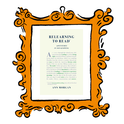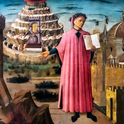There was no crying at my funeral and I was glad of it. It made me proud to see how bravely my mother bade farewell to her youngest boy. My darling sister, Ayaka, secretly touched her elbow in case she faltered. But my mother stood firm throughout the ceremony. She knew that my death was honourable, that I embraced it with tears of joy.
I was a little sad, of course, to be leaving this life. Sometimes it had been very sweet to me. Like that time I kissed Eriko in the cherry grove behind her father's house. Or when my older brother came home in his soldier's uniform, with a flag furled and tucked under his arm, and everyone in the village came over to listen to his stories of our glorious deeds in Manchuria. But there was no point regretting my death. It was, after all, impossible to undo.
I was already gone when the mouth of hell opened thirty miles away. A hundred thousand brilliant souls fled before the darkness. They tore silently, like reflections of sun from a giant mirror, across the sky above our village. Trees shook, flags shivered, in a premonitory gust of wind. The whole earth lurched, as though woken from ancient dreams. Thank the gods - my mother must have said - that I had not lived to witness this terrible storm, or its aftermath of corpse shadows and mangled iron, the archipelagos of scorched flesh on the backs of survivors.
But I would see them. I would stand on a scorched hillside and gaze down, with these dead man's eyes, at the evaporated city. And long before that day, at the moment of catastrophe, following so close to my own, I felt the air quiver, I heard the strange thunder. Hiding in my cave, beside the beach near our village, I watched the sideways ripples on the sea - the cross-stitching of old waves and new, like the conflict between two moons. I thought the world was ending. I hoped it might, to eradicate the incomprehensible truth: that I was still conscious.
After the shockwaves, after the great cloud and its contrails like scars in the sky's belly, I hobbled back to the village where I had lived and cowered beneath my beloved's house. I listened to the shuffling of sandalled feet above my head and to the mournful drone of her father's voice. Sometimes her mother replied, very quietly, like a cat moaning in a bad dream. But Eriko was completely silent. Down in the sand, keeping company with crickets and sand fleas, I strained to hear my sweetheart's voice. I longed, in vain, to hear her weeping. Eventually I had to move. I was being tortured by hunger.
I could not rid myself of old habits.
The next few days I spent in the cave beside the sea. When the beach was empty I would take a walk along the shoreline, looking at the flotsam - mainly pieces of wood, a few barnacled crates, dead crabs, a GI's boot, a charred hand. I thought about my corpse, how it should be floating somewhere out in that immensity, or trapped on the ocean bed, alive with eating fish.
Some course of action had to be followed. But I was powerless to make a decision. I seemed to have left my will in the fuselage, or else it had left me long ago, well before my death, when I was still a boy perhaps, catching squid in the sea at night. All the world, from which I could not divorce myself, seemed to float on indecision.
Then the second bomb fell.
A few villagers stirred from their houses after the shrill, whining, divine voice had finished sounding on the radio. Who could believe what had happened? Several people I had once known halted and seemed to peer in my direction. A few of them narrowed their faces, as though confronted by the smell of something rotten. But it was impossible. Everyone knew what had become of me.
Resting in a moonlit wood, I remembered that night a picture from when I was little. It came from an old scroll, the Gaki Zoshi. My mother had shown it to me one afternoon, while the cherry blossom snowed down outside our house. It showed a group of hideous ghosts crawling among the living. The ghosts had been gluttons in their lifetimes. They had loved worldly things too much, and now they could not tear themselves away. After my mother showed me this picture in her book, I could not sleep for many nights. I was terrified that one of the hungry ghosts - with its staring eyes and gaping mouth - was squatting beside me in the darkness. When I told my mother, she said that ghosts were harmless. We could not see them or touch them. Even if they sat beside us, we knew nothing about it. And so, having attended my own obsequies, I had to face the truth. I was dead. I had no right to hang on among the living.
To my eternal shame, I did. I longed to reveal myself to Ayaka, or to find Eriko where she slept and weep into her shoulder. Unwilling to leave familiar surroundings, I fashioned a rod, I twisted thorns to make a hook and fished in the cove at night. In the early hours, when the fishermen were out at sea, I would steal fruit from their gardens.
One day in September, when my solitude became unendurable, I ran through the desolate street and returned to my mother's house, to my house, where I had spent the whole of my life and in which my soul was most deeply rooted. Trembling with apprehension, I stalked up and down in the grove. There was a single faint light in the house. I could visualise every detail of the lampshade with its pattern of red cherries and the simpler earthenware vase into which, months before, I had fixed a candlestick to replace the useless lightbulb.
Night fell. An obscure bird called loudly above my head. Ayaka, I knew, would be out with the women, mending nets. I summoned all my nerve, or what I still imagined was my nerve, and crept up the familiar wooden steps. My mother was there, kneeling on the floor, mending a gown. Her back was turned to me. I could tell that she sensed me. I saw her fingers stop moving and her body grow rigid. Did my presence make her hair stand on end? I could have spent eternity in that familiar room, with my mother kneeling as if in prayer, sensing her son and resisting her senses. I knew she would not turn and I could no more speak to her than fish may breathe out of water. But my death had not released me from time, I knew that I was transgressing, that Ayaka would soon return. I looked about the darkening room, with only the feeble light from the candle to see by. And to my consternation, I could see no pictures of myself. The school photograph of me in my cadet uniform had given way to a frame-shaped absence on the wall. And where were my school books? Gone, or sold, or used up as kindling. Mother, I wanted to cry, where are my clothes, that you used to fold so lovingly? In my frenzy I must have made a noise, slamming the wardrobe and opening doors. Yet my mother, whom I could discern immobile in the deepening gloom, did not speak or move. Her face was averted, her eyes fixed on a spot on the floor.
I fled to the grove at the back of our garden where, after a long weep, I looked up to behold a white figure on the porch of the house. The figure withdrew and I advanced to discover some green tea and plums left on a dish beside the pond. It was an offering to the dead. I took it. But my shame the next day was so terrible - like the aftermath of rotten fish on a man's stomach - that I fled the garden, and the village, and the district, to begin my lonely wanderings.
Our prefecture of Yamaguchi had not suffered so much as its northern neighbour. I found what had happened there; being dead could not spare me the worst of it. I heard the feeble croaking of survivors in their makeshift hospital tents. I saw a scorched parchment of flattened houses and fallen trees, becoming in the middle a sort of nothingness, white like an ulcer, or a quarry exhausted by industry. Close to the epicentre, I heard a doctor say, the sand had turned to glass.
I could not stay in that valley. It was too full of ghosts. There was no mistaking their distended bellies, the scaly and corrupted flesh, the eyes dulled by shame and despair. Living people - doctors and orderlies, stinking foreign devils with faces so reproachably alive - walked among the corpses. They may have thought they were helping. But there is no remedy for broken spirits.
How did I know they were ghosts? Because some of them saw me. A few weary eyes met mine, one or two heads faintly nodded. Others even spoke to me. I could not tell what they were saying. Perhaps they wished to know my story, or to tell me their own. I could have listened more closely. But it would have been to scoop ashes into my mouth.
I pressed on, following the coast, through the decay of autumn. The hills around Kure were being stripped for firewood. I slept under a mound of leaves and sawdust in a newly hacked clearing and nearly yapped with fright when a voice behind me said, "You'll catch your death out here, friend." I beheld a scrawny, dishevelled creature, wearing the tatters of a soldier's uniform. His cheeks hung like empty pouches where the fat used to be. "I've found an old shrine beside a stream," he said. "We can shelter there from the wind. Don't be afraid, I mean no harm. My name is Honest Morito." He reached down and squeezed my shoulder. It was the first time anyone had touched me since my death. "Listen," he said, "I'm travelling north to the place where I used to live. It's a little village in the hills near Okayama. Come on, the night will soon be upon us and someone might steal our shelter..."
Honest Morito tried hard to deserve his name. He was a jolly and talkative ghost; he never pushed me to speak about my life but assumed I had lived it well. He showed me such respect on our difficult road that I almost believed in my honour again. "I hope to be reborn," I said one night as we huddled beside a dying fire. "That's why I'm going north."
"A strange way of putting it," he replied. "I just want to pick up my old life."
I said nothing, feeling only pity for him. How could he hope to regain himself, or stay honest, when he was a shadow blown about the world?
After the snow began to fall, Honest Morito betrayed his name. He stole with my help the scrawny rooster from a dungheap. We broke into rice stores and ran, trembling with cold and fear, into ditches to chew our loot. Sometimes I awoke to find him praying. Do the gods hear the dead? I doubt it. Yet perhaps they had taken pity on him, I thought one morning, to explain his absence from my side. In the next village I heard rumours that a poor farmer had been robbed and murdered. Nobody believed a neighbour was responsible. Search parties set out to find the culprit. Only I knew that they would never catch him. Honest Morito had disappeared into hell.
As for me, with the cunning of necessity, I learned how to inhabit another man's body. In the four years that followed, I was a fisherman in Kobe, then a gardener in Kyoto. He was a quiet young man, that gardener, who knew little about plants but worked hard to please his employers. He had few friends. Women barely noticed him. He seemed to prefer solitude and liked to sit in the calm of a Zen garden, watching with empty thoughts the stilled flow of sand. I could have stayed in that man for ever. But there lived in one of the gardens a very old monk. He worshipped in a small temple and kept watch on the progress of the seasons from his wooden bench under a bamboo screen. The first time he saw the gardener I felt uneasy. I distrusted the monk's vigilance. When, after many months, he extended a bony arm and waved us over, I could not turn away.
The old monk calmly scrutinised the gardener's face. I wanted to run. The monk tilted his pale head, as though trying to look past the gardener - or through him, into my eyes. I sensed him probing for me. He began to speak, addressing my host, about the rain and the problems of frost. I knew that my presence had been detected. "You should rest," the old monk said. "You have laboured much and needlessly." The gardener thanked the monk but refused the offer of a place on his bench. Bowing with respect, he returned to his flowerbed. In the morning I fled Kyoto.
The last man I inhabited was a factory worker in Wakayama. I did not enjoy life on the workshop floor, where we fixed dials on wireless radios, and soon I was longing to see my village again, to swim in the cove and sleep beneath its wind-twisted pines. Like the ghosts in the Gaki Zoshi, I have loved the world too much. Or to be precise, I have loved my home. It was no easy decision to shed my disguise. I feared the long journey south and dreaded what I might find there. Desire, however, proved stronger than my fear.
Five years dead, I returned to my village.
My mother's house was sinking into the undergrowth. Weeds pushed their way up the wooden steps. Everything was in darkness. The obvious thing to do was to ask a neighbour what had happened. But that was impossible, of course, and anyway I did not need to be told. My mother was gone.
Ayaka I found by the fish-gutting sheds, washing linen in the stream. She did not see me where I hid behind a pile of stinking crates. I recognised a man's clothes spread out to dry in the morning sun. Their owner revealed himself soon enough. Yoshi had always admired my sister. Should I have lived to protect her from such a fool? Had I betrayed her by my sacrifice? Foul, stinking Yoshi had climbed into her belly to be sure of his claim. I cannot believe that she willingly accepted his marriage proposal. With mother dead and brothers killed, an orphan, what choice did she have?
I crawled away, hollow with impotent rage, and bedded down on the edge of old Nagayama's farm. I awoke to hear children's voices on the other side of the barn door. I was dazzled by morning sunlight. Under the shield of my arm, a small boy and a small girl stood and gaped at me. The boy was carrying a basket of white mushrooms. It fell from his grip. I tried to speak, to reassure them, but what emerged from my parched throat sounded like a growl.
The children were new to the world. They didn't know not to see me. I blocked my ears and considered hitting them to make the screams stop. I chased them from the barn, only to behold a fat young man running from old Nagayama's house, brandishing a rake. I could hear him bellowing as I ran through the orchard - and scalped myself on a washing line. Clothes fell onto the grass. Sprawling on the ground, I saw a white sheet above me melt. I forgot my status. I hobbled on my knees and tried to catch her hands.
"Eriko."
I noticed peasant clothes, tough material for working in the fields. She pulled her hands up to her chest. "Children," she cried, "run and fetch your father!"
"Eriko, it's me. I've returned."
Her face savage with fear, she turned her eyes from me. "Hanazo! Hanazo!"
"Eriko. You do see me!"
For an instant, for a little instant worth exchanging with all eternity, she did look at the place where I knelt. Then her eyes slid up to the rake travelling at speed through the morning mist. I managed to duck the blow, falling onto my backside. Hanazo Kuwata swiped several times above my head, fanning me with the rake's fingers. We had been enemies at school. I knew him to be a coward and a bully: Hanazo the Monkey. To see Eriko take refuge behind him was unendurable. I shielded my eyes against it, and opened them long after the breeze from the rake had ceased. They were walking back to the house, the parents escorting their children to safety. I saw only Eriko's back, her hair bound up in a simple knot, the nape I once kissed.
For two days I scavenged and thieved. All my victims had known me once. Now, though I stole food in broad daylight, sometimes from the very table where they were eating breakfast, the villagers blushed and looked away. Imagine the licence I had. Raised in obedience to the law, I found that I could do whatever I pleased. I tripped up grim patriarchs in the street and urinated in my headmaster's fish pond. Shrieking and gibbering like a Kabuki ghost, I upset vegetable carts and spilled dumplings from their bowls. I scratched at the doors of frightened children, whose parents merely moved them to another room. This behaviour of mine continued, it worsened with every averted face, every back turned to my mischief. Look at me, I meant to say. Look at me, you bastards. Until, one afternoon, somebody did.
The plums were too enticing to be left on the stall. I did not see the fruitseller, having decided to ignore those who ignored me. I raised a plum to my mouth.
"Stop! Put that back at once."
A round, narrow-eyed, pig-like face loomed over mine. I had never seen it before. "I'm warning you. If you don't pay, I'll smash your face." From behind his back, like a conjuror, the stranger produced a walking stick. My heart skipped with terror and joy. I lowered the plum towards the stall. The fruitseller lowered his stick. I snatched the plum and bit into it.
"Thief! Stop him. Thief!"
Where did this energy come from that allowed me to run so fast, while the fruitseller gave chase? Whoever this man was - a newcomer to the village - he was not so swift as me. Having shaken him off my tail, I hid in the dusty alley behind the post office. Slumping down, panting, with the plum bleeding in my hand, I noticed that I had cut my foot.
"Here, I've found him!"
Heaving for breath, his piggy eyes wide with triumph, the fruitseller pointed his stick at my head. I reached down to touch the gash on my foot. "It's not so deep," he said. "That's how I tracked you down." I said nothing, only looked at my wet fingers. In my other hand I squeezed the wounded plum. "Well, come on," the fruitseller shouted. "I've got him cornered."
Two policemen appeared in the mouth of the alley. They peered over the stranger at the place where I sat. I knew them both. Yuichi used to spy on my sister from the grove at the bottom of our garden. I thumped him for it once, when the teacher had left the classroom. His colleague, Emon, had been three years below me at school, and I remembered the look of admiration he gave me on the day I volunteered. There was no such expression on his face now. The policemen shared a nervous glance. "What are you waiting for?" demanded the fruitseller. "Aren't you going to arrest him?"
Yuichi spoke first. Already he was reaching for the fruitseller's sleeve. "Whom should we arrest?" he said. "There's nobody here."
The fruitseller gasped in bewilderment. "This man... here... right here in front of you."
Emon shook his head. Yuichi changed his grip from the man's sleeve to his arm. "We'll pay for the fruit," he said. Emon took the other arm and they wheeled him about. "You must have imagined it."
The last thing I saw of the fruitseller, he was casting his eyes down at his palm, in which a coin had been pressed, fresh from Emon's pocket. His piggy face was swollen with incomprehension. Nobody would blame him for his behaviour. He was new to the village and knew nothing about my story.
I was meant to fly to my glorious death on 6th August 1945. But the plane was already scrap and failed to get airborne. Its godlike days were ended. So too my country's. We limped away, like dogs in disgrace, to hide in the shadows. Eventually my country emerged, but I did not. There was no room in my village for a grounded thunder god. I should have killed myself, sitting in that silent cockpit, in the ruin of my world. I should have plunged that sword into my belly and saved my honour. But after the disbelief and the rage and the tears, with blood welling up beneath my headband where I had dashed my forehead against the controls, I was filled with the sweetness of living. I remembered Eriko's parted lips, and the cherry blossom, and the taste of cabbage soup as only my mother could make it.
I chose dishonour.
So it has been my punishment to walk as a shade in the brilliant world. I have been the scratching at a locked door, the tingle in a woman's spine, the fruit stolen from the shelf.
I am the ghost who bled.











